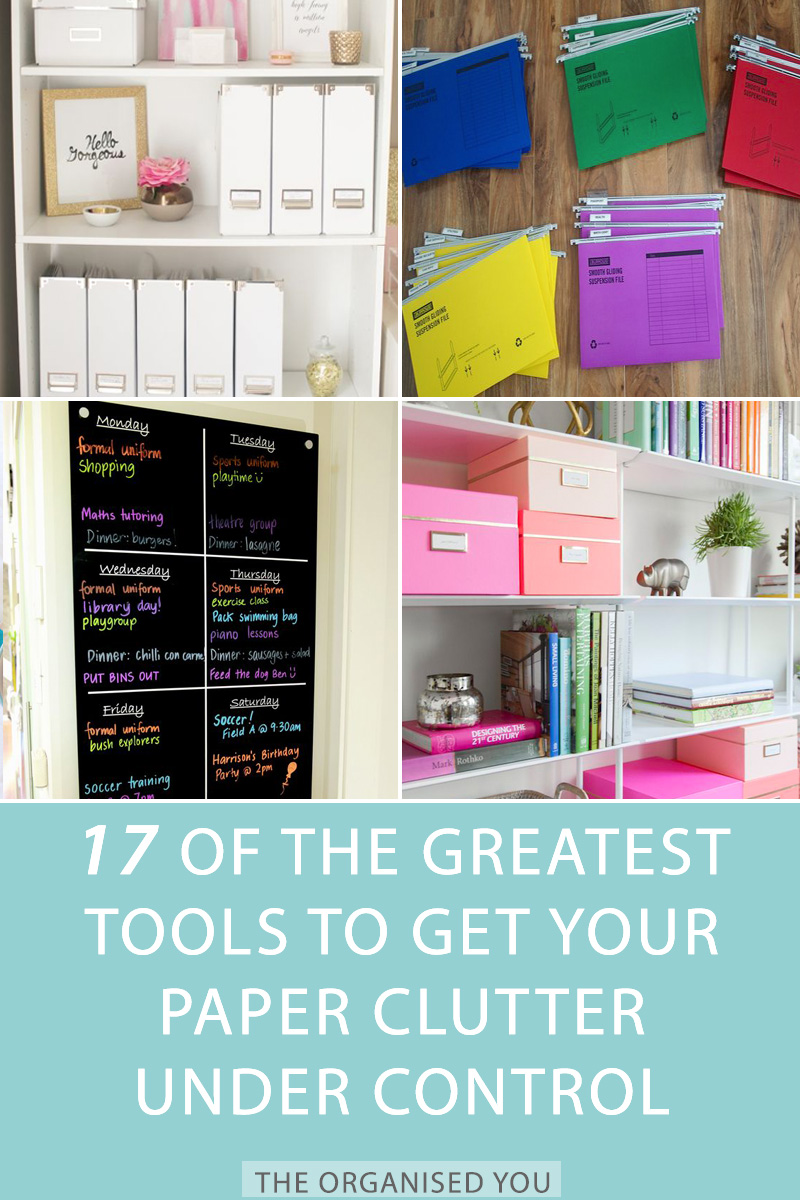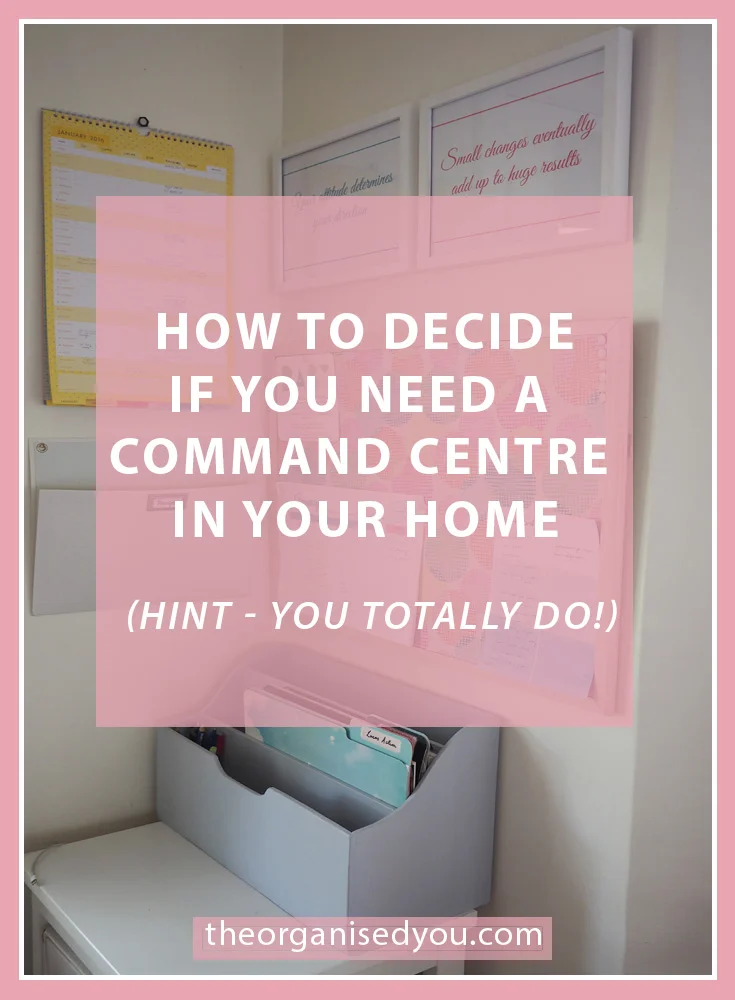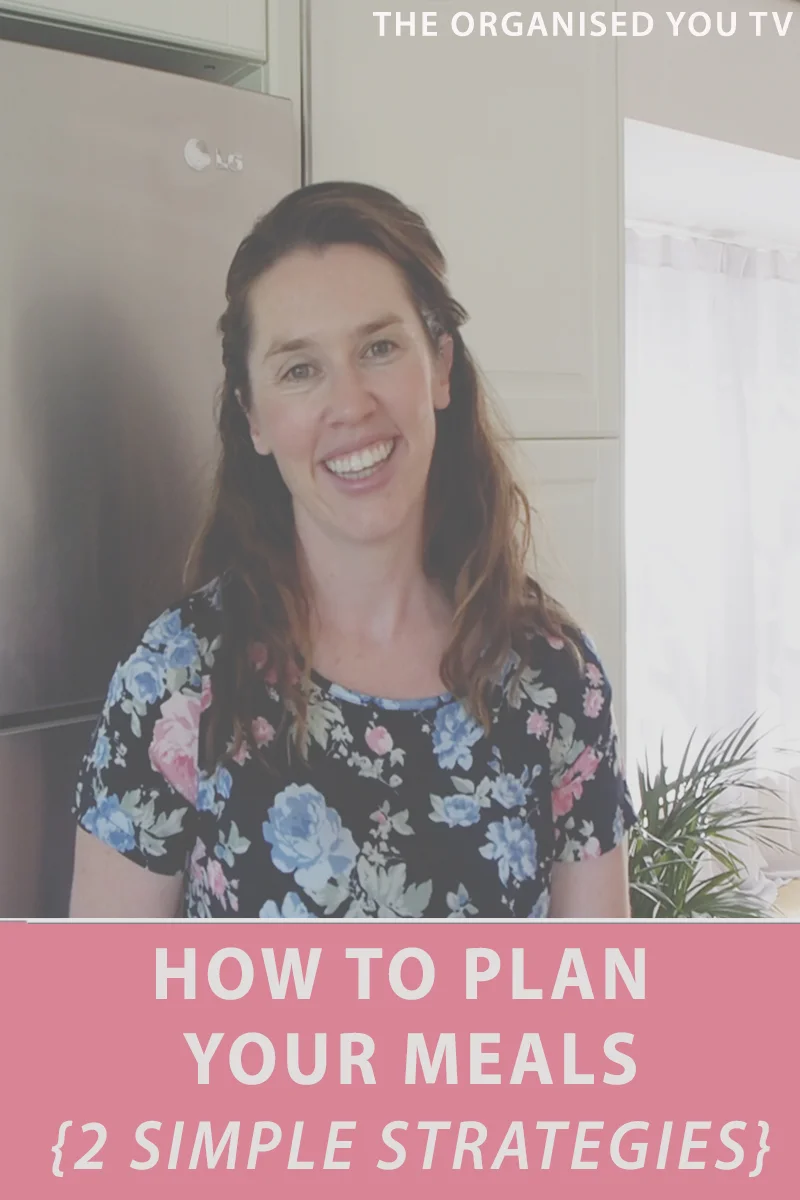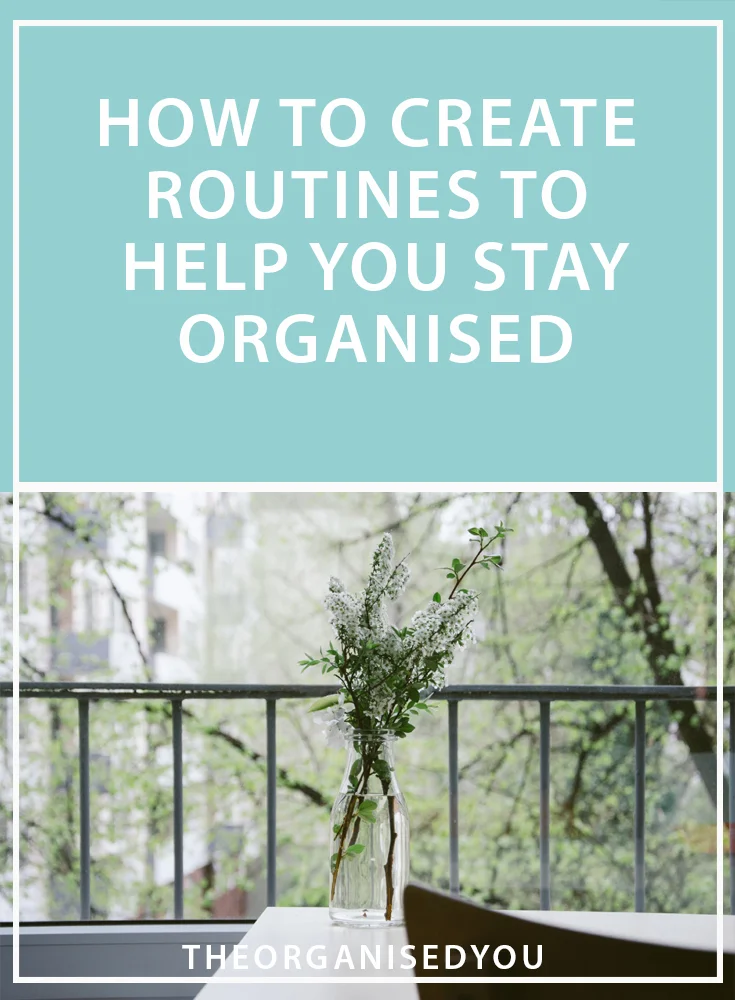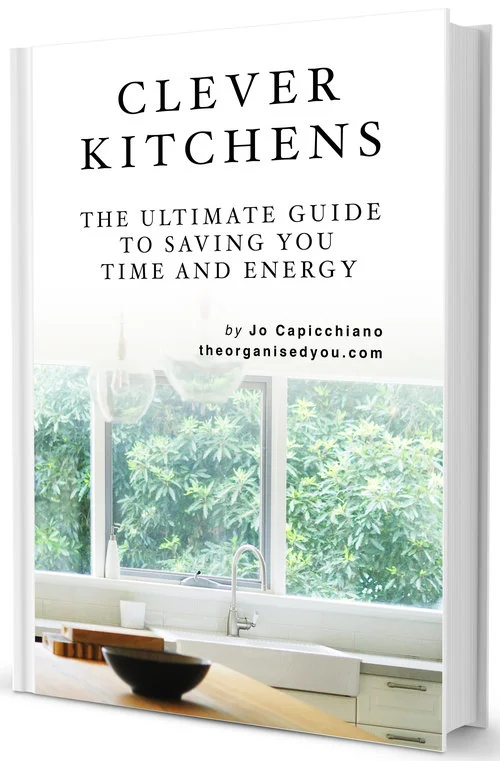As a blogger and professional organiser, I come across many different organising needs and struggles from people I talk to, meet with and hear from. These needs and struggles include knowing where to start when it comes to getting more organised, having strategies to overcome the organising barriers and excuses, knowing how to prioritise and schedule tasks, or knowing the process for decluttering and setting up new organised systems. When you start looking in depth at these struggles and concerns, some related themes start to arise. To me, the most common ones are:
Time
Fear/feeling overwhelmed
Lack of knowledge
Procrastination
Perfectionism
Maybe you can immediately identify with or relate to one (or some) of these themes? Today I want you to think about what's truly holding you back from getting more organised. I'm giving you some strategies to try to overcome the barriers, but more than anything it comes down to a change of mindset. Anyone can get more organised when armed with the right tools, strategies and knowledge! I know you can too.
While some reasons for disorganisation are completely genuine (i.e. ill-health or sickness in the family; or the loss of a loved one leading to lots more 'stuff' in your home that you're not ready to deal with), others tend to be just excuses that can prevent you from taking that first step towards becoming more organised.
Being honest with yourself is about facing up to which of these reasons are really just in your mind, and which are genuine road-blocks that prevent you from leading a calmer life.
Now, let's have a look at some of those struggles and excuses, and some proactive solutions for overcoming them.
TIME
Excuses/Frustrations:
There are always so many things to do but never enough time to do them
I don’t have the time to dedicate to it properly and get everything done
I feel guilty and resentful about spending so much time away from my kids/work just to organise
Solutions:
First of all, you need to completely turn your thinking around to realise that, in the long run, being organised will save you a huge amount of time in your everyday life.
Although it will definitely take time to go through the whole organising and decluttering process, you will absolutely gain this back ten-fold in your day-to-day life once it's complete! There are so many time-related benefits to being organised in different areas of your life i.e. having a plan for your day/week/month, being prepared for busy mornings, being on top of household chores such as laundry and cleaning, having systems for dealing with paperwork....
Once you start implementing these systems and using and maintaining them everyday, you'll be amazed at how many spare minutes you actually have in your day.
The quicker you get organised, the more time you will have to spend on things that really matter. Keep in mind also that you don’t have to do all your organising at once - home [and life] organisation is about making projects small and rewards immediate, so that you won't be spending hours and hours away from your family.
** These are the exact skills I go through and teach in my online course Chaos to Calm - check out all the details here! >>
FEAR/FEELING OVERWHELMED
Excuses/Frustrations:
I feel overwhelmed by the ‘to-do’ list
I don’t want [or know how] to part with keepsakes
I feel bad getting rid of things that other people have given me
No-one in my family will help out or keep the systems in place - I’ll never get it to work!
Even if I do get everything organised, I know I won’t be able to keep it up
Solutions:
If you've got a lot of organising you need to do in your home, you need to make each project small in order to avoid feeling overwhelmed - you can’t [and don’t have to] do everything at once!
Separating jobs into small tasks, and biting the bullet to take that first step and accomplish your first organising goal, will give you a great sense of satisfaction. It will also mean your future ‘to-do’s’ and decluttering/organising sessions won’t be as massive or overwhelming, because you’ll have already set the foundation of organisation in your home.
In regards to dealing with keepsakes and unwanted gifts, you need to ask yourself the following set of questions -
Do I use it?
Do I love it?
Would I miss it if I lost it?
Is it a favourite?
Does it hold a special memory?
If the answer is no to any of these questions, then it is taking up valuable space in your home and is not worth holding onto. If you are feeling bad or guilty about getting rid of an item, think about whether your friends and family would want you to keep something that didn’t make you happy.
Remind yourself that a ‘thing’ is not a representation of your relationship with the person. Having the above questions in your mind while decluttering will really help you be more decisive.
LACK OF KNOWLEDGE
Excuses/Frustrations:
I don’t know how to organise
When it comes to decluttering, how do I decide what I should be getting rid of and what to hold onto?
I don’t have proper systems in place for keeping clutter under control
I want to get organised but don’t know where to start
Solutions:
It's important to realise that organising is a skill that definitely does not come naturally to everyone. It is something that needs to be learned just like any other skill in life. Our brains are all wired differently, so while some people can easily look at a space to work out how to organise it, others will find this a very difficult task.
Start browsing through organising blogs and books. Watch YouTube videos on home organisation, and use resources like Pinterest, with helpful how-to tips and pictures of organised spaces, to find inspiration and increase your knowledge of how to organise.
This is the best way to discover new and unique ideas, learn more about how to work with what you have, and come up with a vision for your own space. (You can also check out my blog archives, which have loads of videos, tutorials and how-to's for organising the home!). Don’t be ashamed or embarrassed about not having the knowledge about something that certainly does not come naturally to everyone.
If you really don’t know where to start, the guided lessons in my new course Chaos to Calm will walk you step-by-step through the organising process, and a follow-along workbook and course checklist will help you stay on track!
PROCRASTINATION
Excuses/Frustrations:
I haven’t got the energy or motivation to start
Organising is boring
I’m sure everything will sort itself out in the end
There’s always something that is a bigger priority
I’ve tried to get organised, but it just never sticks
Solutions:
Motivation and discipline for any task is all about having the right attitude and a positive frame of mind. Most people would rather be doing something more fun than organising. But once you have actually completed a task, whether it took you 20 minutes or 2 hours, it will ultimately give you more time to be doing the things in life that you do enjoy.
It's also a really satisfying feeling to not only tick a task off your list, but also to see how being organised can benefit other facets of your life i.e. saving money at the grocery store; watching your kids put their toys away in the right spots; having a healthy meal prepared for the family.
The benefits that organisation provides are too huge to avoid doing it just because it’s ‘boring’. Think about how you approach other aspects of your life such as work and parenthood. If you had this procrastinating attitude towards these areas, then nothing would ever get done!
Organisation is not something that will just magically happen or suddenly sort itself out. It is a process you need to commit to starting and maintaining in order to give you heaps of benefits that will ultimately lead to a more calm and balanced life.
PERFECTIONISM
Excuses/Frustrations:
It’ll never be perfectly organised, so what’s the point in starting?
I don’t want to start something unless I can complete it perfectly
It’s too expensive to buy all the things I need to set up good organising systems
Every area of my house needs organising, so there’s no way I’ll be able to do it all
Solutions:
You don’t have to have a perfectly organised home, it just has to be organised enough to suit you and your family.
An organised home doesn’t have to mean no toys in sight, dinner on the table at 6.00 every single night, no dirty clothes in the laundry basket. That’s just not realistic. As long as it is organised enough for you to gain benefits such as more time doing things you enjoy, increased productivity, better organising systems, saving money, reduced clutter... then that's what you're ultimately aiming for!
Yes, you will need time to dedicate to this process as well as the ongoing maintenance to keep it that way, and you may need to purchase some things along the way... but you don’t need to do EVERYTHING at once.
Starting with small, achievable tasks is the best way to get the process happening. This quote is a great one to always have in the back of your mind - ‘organising is a journey, not a destination’.








